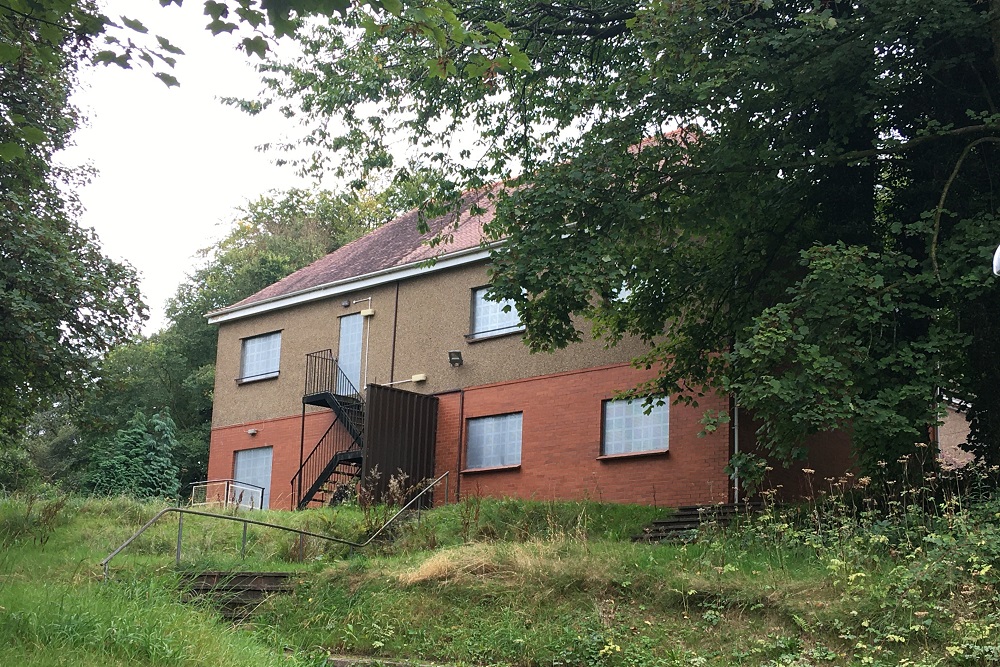Ministry of Justice wins planning battle for controversial female offenders institution

Richard Youle, local democracy reporter
The Ministry of Justice has won a planning battle for a controversial women’s residential centre for low-level female offenders in Swansea despite significant opposition from people living nearby.
Proposals for the residential centre in Cockett was turned down by the council’s planning committee last September but the UK Government department has successfully appealed the decision.
A ministry spokeswoman said the centre will be an important part of plans to tackle the root causes of low-level offending by women and steer them away from crime for good. She said it will be used by women from Swansea, help to reduce crime in the city, and that it was supported by the Welsh Government and South Wales police and crime commissioner, Alun Michael.
Hugely disappointed
Cockett councillor Mike Durke said residents “were hugely disappointed” with the appeal decision and that they felt their concerns had been ignored. He said they had been outraged at finding out about the proposal on the Ministry of Justice’s website originally, and that they believed from the outset the centre was in the wrong place.
However, Cllr Durke said they took some reassurance from a condition now attached to the planning approval which prevents the women’s residential centre being used in the future for other secure accommodation within its defined planning class, such as a detention centre or even a prison.
Cllr Durke added: “As councillors we will be working closely with local people, police and the Ministry of Justice and the residents within the centre to make sure all the planning conditions are adhered to at all times.”
The centre will take shape at the Trehafod building, which is within the grounds of the Cefn Coed Coed Hospital site, and include a two-storey extension. The building has, up to now, had a health clinic planning use.
Cause of concern
Anthony Thickett, the Welsh Government-appointed planning inspector who has given the scheme consent, considered two key issues: the effect of the residential centre on the character and appearance of the area, and the living conditions of the local community with regard the fear of crime and anti-social behaviour and glare from the building.
“The introduction into an area of a facility for offenders is an understandable and reasonable cause of concern to a community with low levels of recorded crime,” said his decision. The Ministry of Justice’s attempts, he said, “to assuage these concerns have not been successful and I acknowledge the depth of feeling locally”.
But he said the residential centre would not be a prison but a place providing a range of support for up to 12 vulnerable, low-level offenders. They would, he said, be vetted to ensure they didn’t present a risk of harm to the public and be required to sign an agreement including rules about behaviour off-site.
“Failure to comply could lead to places being withdrawn with a return to court and possibly prison,” said Mr Thickett. “I consider this threat is likely to strongly discourage residents from breaking the terms of their residency.” Probation service staff would, he added, be at the centre every day around the clock.
“I am satisfied that, subject to the implementation of a detailed operational management plan, the proposal would not result in an increase in crime or anti-social behaviour in the area,” he said. “Further, undisputed evidence submitted by the appellant shows that women serving community sentences accessing residential women’s centres have a low re-offending rate compared to women on short sentences in custody.”
Lighting
Another condition he imposed was that no work can take place until a lighting strategy for the building has been submitted to and approved by Swansea Council.
A children’s cancer charity occupies a building on the opposite side of the entrance to the hospital, and an objector who spoke at the council’s planning committee meeting last September said “it truly beggars belief that anyone with any compassion could suggest that this is the right place for such a development”.
Another objector claimed the proposal was “sheer lunacy” and “the culmination of decades of failed liberal ideology and soft justice”. There were 215 objection letters, and a petition of objection signed by 122 people.
Speaking on behalf of the scheme, a director for HM Prison and Probation in Wales said Swansea had a higher number of women sentenced to short-term custody than elsewhere. “We are confident that this will help them address their offending and turn them away from their life of crime,” he said.
Welcoming the appeal decision, the Ministry of Justice said: “We will continue to consult and update the local community on our next steps.”
It said the plan was to open the centre next year and that it would focus efforts on the “underlying and complex” factors which led to crimes such as shoplifting and and minor drug and alcohol-fuelled offences. It said statistics showed more than 60% of women in custody have reported experience of domestic abuse, up to a third have been victims of sexual assault, and 50% misuse drugs.
Support our Nation today
For the price of a cup of coffee a month you can help us create an independent, not-for-profit, national news service for the people of Wales, by the people of Wales.






The more I hear of Swansea the more I believe it is Cynmru’s capital of Jack B******s.
….”Not in my area”, “I’m alright”, “I never had that when I was….” are all phrases that are commonly heard in Swansea…
Where do Cockett council members think is the right place for tis,somewhere west of Llanelli,north of Ystradgynlaisor east of Port Talbot I should imagine.